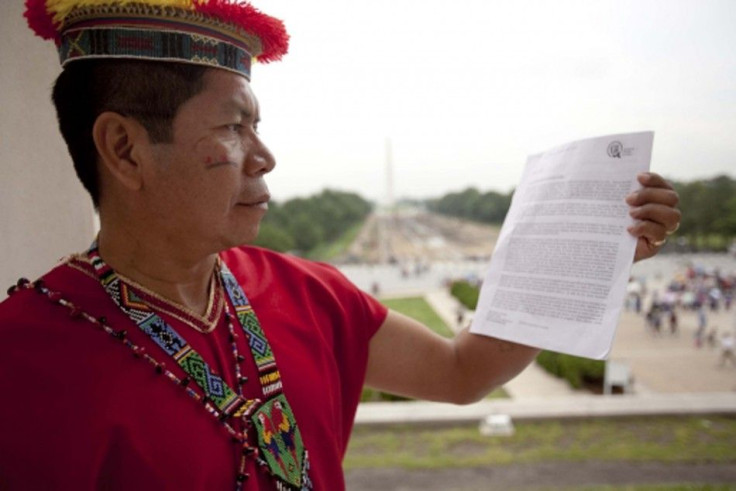Corrected: Chevron Named One of the Most Toxic Energy Companies of 2011

The public relations campaign at end of year 2010 is proving to be a hard one for U.S. oil giant Chevron Corporation. Faced with an oil leak, the suspension of its drilling rights and severe public backlash all in Brazil, the company has now been labeled the most toxic energy company.
Championed by the Amazon Defense Coalition on Friday, the pronouncement first made by alternative online magazine AlterNet puts the U.S. company above the likes of BP Plc, itself on the list for its Macondo Spill in the Gulf of Mexico, and Exxon Mobil Corporation, put on the list for contaminating New York City's ground water in 2009 and for the Exxon Valdez spill of 1989 in Alaska.
Chevron is on the list as well in part because of its purchase of Texaco and the criticism over that company's operations in South America. The amazon coalition contends Texaco engaged in environmentally damaging practices several decades ago in Ecuador which threatened the lives of thousands of people as well as the region's wildlife.
In February, Chevron was ordered to pay $8.6 billion by an Ecuadorian judge in a legal case accusing the company of polluting remote tracks of the Amazon. Chevron challenged that decision, and the Permanent Court of Arbitration in The Hague later ruled that the Ecuadorian courts broke international law. Chevron was awarded $96 million in arbitration costs.
More recently, Chevron is facing mounting criticism from groups alleging that the company knowingly misrepresented the scope of the oil leak in Brazil. Non-profit SkyTruth, which uses satellite images to promote environmental awareness, said roughly 3,700 barrels a day leaked into the ocean and calculated the size of the leak at 14,954 barrels as of Nov. 12, four days after the leak was first noticed on the ocean surface, and four days before the well would be cemented shut.
Chevron last week calculated the total size of the leak at 2,400 barrels.
Brazil's federal government has suspended the company's drilling rights until the company can conclude an investigation into the cause of the leak.
The company was fined $28 million dollars, but The Rio Times reported Saturday that the fines could go as high as $53 million in environmental damages. The Brazilian newspaper also reported the U.S. oil company will be subject to a safety audit to assess the company's ability to respond to future incidents like the one it faced in Brazil.
Correction: This article corrects an earlier version that erroneously reported that the legal case between Chevron and Ecuador was ongoing.
© Copyright IBTimes 2025. All rights reserved.





















